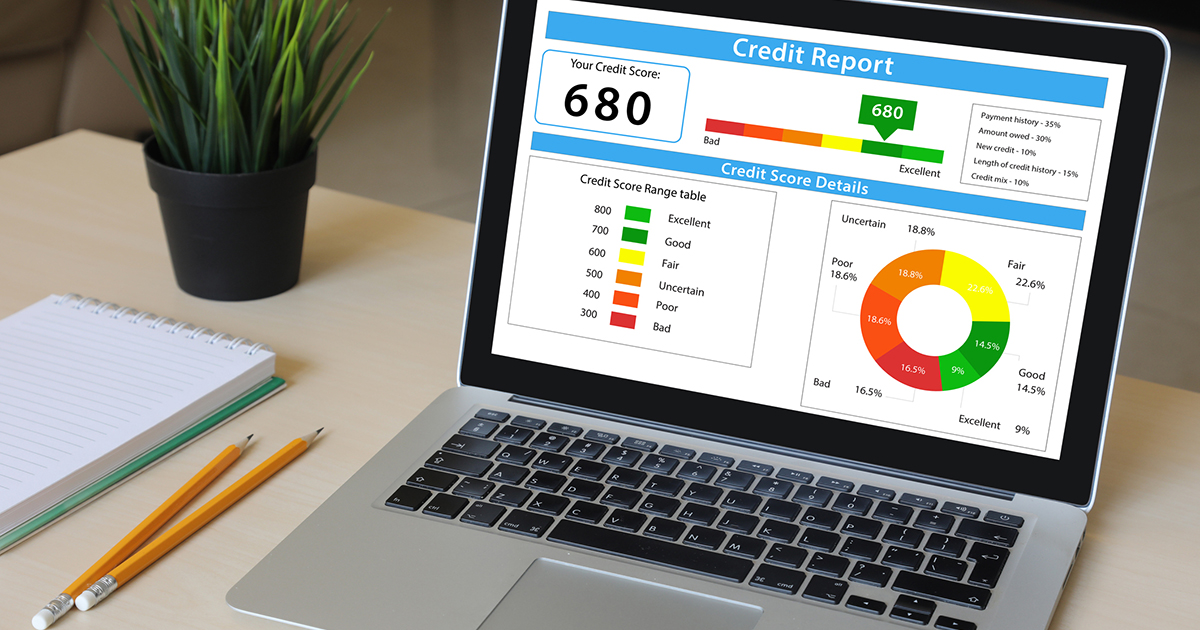Setting new financial goals for 2021 is an excellent way to get back on track with your money, and something that you can do any time of the year, not just in January. One aspect of your financial health you should make a top priority is improving your credit score. This will help you put your best foot forward and may be the difference between you getting approved or denied for a mortgage, personal loan or credit card.
Credit score in need of a little love? Don’t sweat it. Follow these five steps to set yourself up to be in a strong position to borrow as you need, and maybe even at a better rate.
1. Use a credit monitoring service
Signing up to use a credit monitoring service is one practical way to improve your credit score in 2021. This type of service will notify you when something on your report changes. It’ll allow you to not only track your credit but also become aware if there’s any fraudulent activity happening on your account.
There are both free and premium options available. The services you pay for may be worth it since they offer more coverage and extensive protection. Be on the lookout for anyone using your personal information such as opening a line of credit in your name. Commit to being proactive in managing and monitoring your score so you can protect your credit history and report any misuse.
2. Work toward a better payment history
Your payment history will shine if you pay your bills on time, every time. By doing so, you are showing lenders that you’re trustworthy and dependable. While there are various credit score models, this factor carries the most weight when it comes to calculating your score.
How do you make sure to pay your bills on time? First, start by creating and following a budget. Your goal is to always have enough money set aside for bills. By setting up a budget, you will have a list of bills and due dates to work from. Schedule and automate as many bills as you can so you don’t forget to pay them. The last situation you want is paying your bills late because of human error. Set calendar reminders in your phone for any bills you can’t—or don’t want to—automate so you remember to take care of them.
A little attention to detail and getting organized will go a long way in helping you improve your credit score quickly.
3. Reduce credit utilization
Your credit utilization ratio measures the amount of revolving credit you’re using relative to your total credit limit. A higher ratio will harm your score, so stick to a ratio of 30 percent or less. Keep track of what you’re spending and try to pay off your credit cards each month, or work toward lowering your outstanding balance.
If you notice your utilization ratio is high, review your budget for ways to reduce your expenses and look for ways to bring in extra cash—such as selling things online [insert link to blog post]—to pay off debt.
4. Check your credit report regularly
Not all reports will show your specific score, but they will show your credit activity and help identify any red flags. Take the time to look for any open accounts that you don’t recognize. It may be hurting your credit if someone opened an account in your name and is running up the tab.
Another scenario may be that you see an outstanding debt on your report that you know you already paid. While it may take some time for it to show up on your report, it doesn’t hurt to reach out with proof of payment to make sure you’re all set.
You can request a credit report once a year from each of the three agencies (Experian™, Equifax® and TransUnion®) either directly or through AnnualCreditReport.com. (Right now, through April 2021, you can request one weekly.)
5. Have patience
The reality is it’s going to take time. Focus on being consistent with your payments and conscientious of your finances. Stay the course and avoid doing anything that may further damage your score.
Having a solid credit score is an excellent way to improve your personal finances in 2021. Consider implementing these steps to improve credit score and see all the financial benefits it offers you. Are you curious to learn more? Check out our blog for additional tips on how to improve your credit score.






 Federally Insured by NCUA |
Federally Insured by NCUA |  Equal Housing Opportunity |
Equal Housing Opportunity |